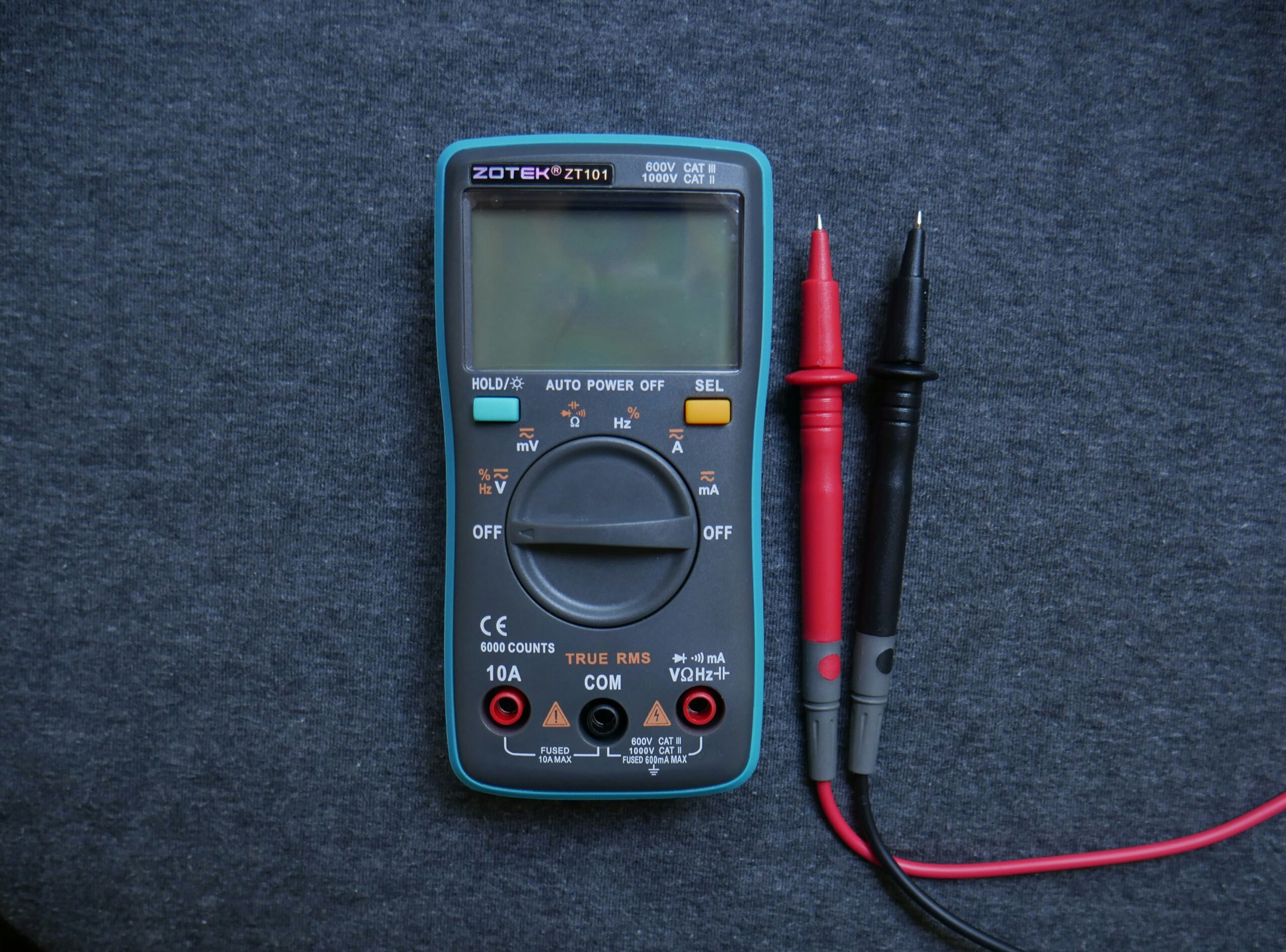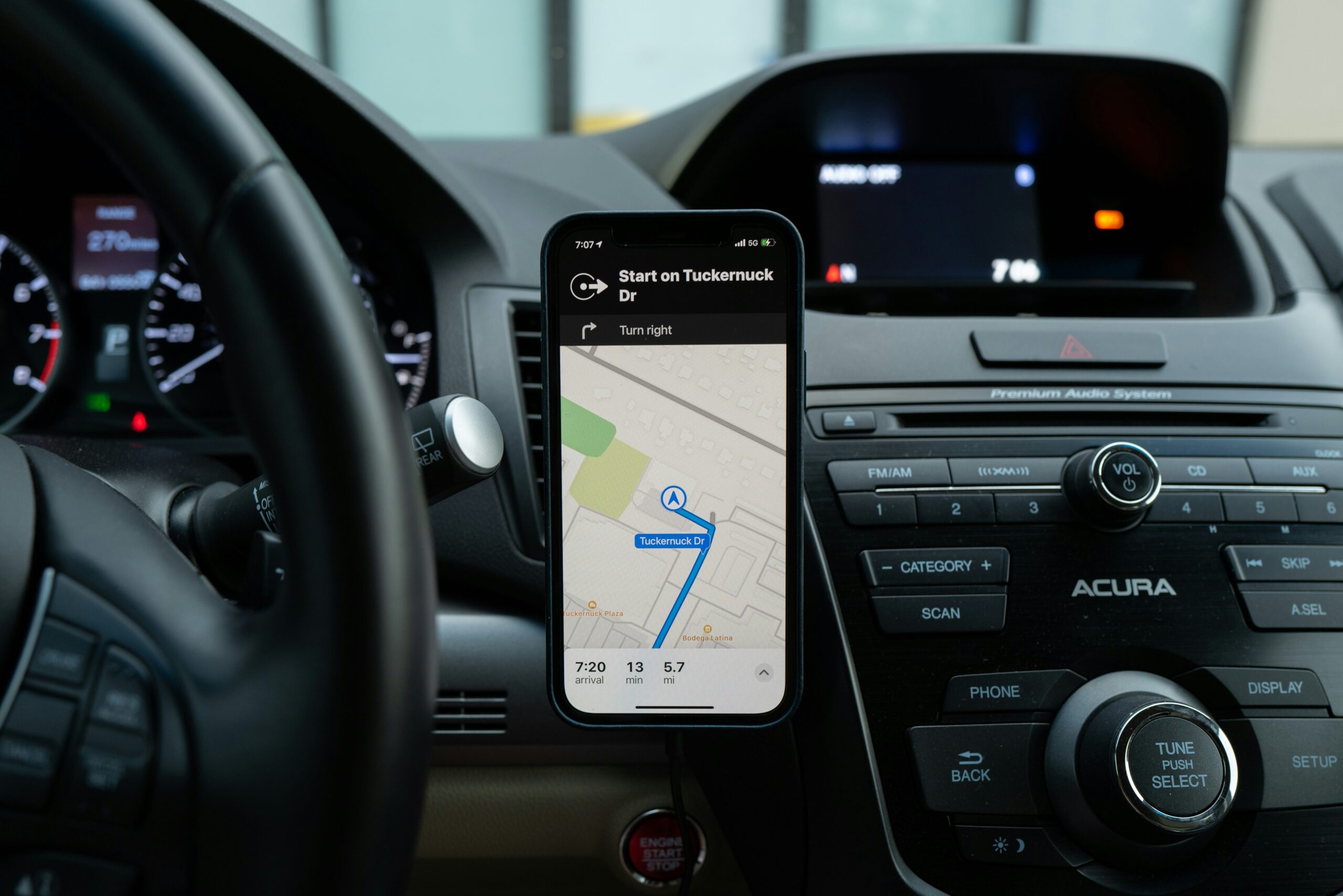A multimeter is an essential tool for anyone involved in electrical work, from professional electricians to hobbyists. It combines several measurement functions into one unit, typically measuring voltage, current, and resistance. The versatility and precision of a multimeter make it indispensable for diagnosing electrical problems and ensuring circuits work correctly. With a vast array of multimeters on the market, selecting the best one for your needs can be challenging. This guide will explore what to look for in a multimeter and provide an in-depth review of the 10 best multimeters available today.
What is a Multimeter?
A multimeter, also known as a VOM (Volt-Ohm-Milliammeter), is an electronic measuring instrument that combines several measurement functions in one unit. The primary functions of a standard multimeter include measuring voltage (both AC and DC), current (AC and DC), and resistance. More advanced multimeters can measure additional parameters such as capacitance, frequency, duty cycle, temperature, and even connectivity and diode testing.
Types of Multimeters
- Analog Multimeters: These use a moving coil meter and a needle to display readings. They are less common now but are valued for their ability to show trends and fluctuations.
- Digital Multimeters (DMMs): These provide numeric readings on an LCD. They are more accurate, reliable, and easier to use than analog multimeters.
How to Choose the Best Multimeter
Choosing the best multimeter depends on several factors:
- Accuracy: This is crucial for reliable measurements. Look for multimeters with a high level of accuracy, typically within 0.5% for voltage measurements.
- Resolution: The smallest increment of measurement the multimeter can display. Higher resolution allows for more precise measurements.
- Range: The range of values the multimeter can measure. A good multimeter should have a wide range to handle different applications.
- Safety: Look for multimeters that meet safety standards such as CAT (Category) ratings, which indicate the maximum voltage the multimeter can safely measure.
- Build Quality: A robust build ensures durability and longevity. Look for multimeters with good quality housing and solid construction.
- Additional Features: Features like auto-ranging, data hold, backlit display, and connectivity options can enhance usability.
- Price: Ensure the multimeter provides good value for the price. More expensive models often offer better features and higher accuracy.
The 10 Best Multimeters
1. Fluke 87V Digital Multimeter
Overview: The Fluke 87V is renowned for its precision, reliability, and robustness. It is widely used by professionals and is capable of handling complex electrical problems.
Key Features:
- Accuracy: ±0.05% DC accuracy.
- Resolution: 6,000 counts, up to 20,000 in high-resolution mode.
- Range: Measures up to 1000V AC/DC and 10A.
- Safety: CAT III 1000V, CAT IV 600V rated.
- Additional Features: True RMS for accurate AC measurements, temperature measurement, peak min/max recording, and auto and manual ranging.
Pros:
- Highly durable with a rugged design.
- High accuracy and resolution.
- Extensive safety ratings and certifications.
- Wide range of measurement capabilities.
Cons:
- Relatively expensive.
- Complex interface for beginners.
Detailed Review: The Fluke 87V stands out with its high accuracy and reliable performance, making it ideal for both fieldwork and laboratory environments. The True RMS functionality ensures precise readings even in environments with noisy or distorted signals. Its robust design means it can withstand rough handling and harsh conditions, typical in industrial settings.
2. Klein Tools MM700 Multimeter
Overview: Klein Tools MM700 is an excellent choice for those seeking a reliable multimeter without breaking the bank. It is designed for durability and ease of use, making it perfect for electricians and technicians.
Key Features:
- Accuracy: ±0.7% DC accuracy.
- Resolution: 4,000 counts.
- Range: Measures up to 1000V AC/DC and 10A.
- Safety: CAT IV 600V, CAT III 1000V rated.
- Additional Features: True RMS, temperature measurement, and auto-ranging.
Pros:
- Affordable.
- Durable construction.
- True RMS for accurate measurements.
- Wide range of safety features.
Cons:
- Lower resolution compared to higher-end models.
- Fewer advanced features.
Detailed Review: The Klein Tools MM700 offers a blend of reliability and affordability. It’s built to last with a sturdy design, and its True RMS feature ensures accuracy. Although it lacks some of the advanced features found in more expensive models, it covers all the essential functions needed for most electrical tasks.
3. Fluke 117 Electrician’s Multimeter
Overview: The Fluke 117 is tailored for electricians, offering essential features required for everyday electrical work. Its compact and ergonomic design makes it easy to handle and use.
Key Features:
- Accuracy: ±0.5% DC accuracy.
- Resolution: 6,000 counts.
- Range: Measures up to 600V AC/DC and 10A.
- Safety: CAT III 600V rated.
- Additional Features: True RMS, low input impedance to prevent ghost readings, and non-contact voltage detection.
Pros:
- Compact and ergonomic design.
- Accurate and reliable.
- Designed specifically for electricians.
- Non-contact voltage detection.
Cons:
- Limited voltage range compared to industrial models.
- Lacks some advanced features of higher-end models.
Detailed Review: The Fluke 117 is a practical choice for electricians, combining precision with user-friendly features. Its compact design makes it portable and convenient for on-site work. The non-contact voltage detection adds an extra layer of safety, while the True RMS capability ensures accurate AC readings.
4. Amprobe AM-570 Industrial Digital Multimeter
Overview: The Amprobe AM-570 is designed for industrial environments, offering robust performance and a wide range of features. It’s suitable for professional electricians and technicians working in demanding conditions.
Key Features:
- Accuracy: ±0.09% DC accuracy.
- Resolution: 6,000 counts.
- Range: Measures up to 1000V AC/DC and 10A.
- Safety: CAT IV 600V, CAT III 1000V rated.
- Additional Features: True RMS, temperature measurement, and a built-in flashlight.
Pros:
- High accuracy.
- Durable and rugged design.
- Comprehensive range of features.
- Suitable for industrial use.
Cons:
- Can be complex for beginners.
- Slightly bulky.
Detailed Review: The Amprobe AM-570 is built to withstand the rigors of industrial environments. Its high accuracy and True RMS functionality make it reliable for critical measurements. The built-in flashlight is a thoughtful addition for working in dimly lit areas, and its robust design ensures durability.
5. Extech EX330 Autoranging Mini Multimeter
Overview: The Extech EX330 is a versatile and compact multimeter suitable for a range of applications. Its affordability and ease of use make it a popular choice for both professionals and hobbyists.
Key Features:
- Accuracy: ±0.5% DC accuracy.
- Resolution: 4,000 counts.
- Range: Measures up to 600V AC/DC and 10A.
- Safety: CAT III 600V rated.
- Additional Features: Temperature measurement, frequency, duty cycle, and a built-in thermometer.
Pros:
- Compact and portable.
- Affordable.
- User-friendly.
- Wide range of measurement functions.
Cons:
- Limited voltage range.
- Lower build quality compared to higher-end models.
Detailed Review: The Extech EX330 stands out for its compact size and versatility. It’s an excellent tool for everyday electrical tasks, offering a range of measurements including temperature and frequency. While it’s not as robust as more expensive models, its affordability and ease of use make it a great option for general use.
6. Fluke 116 HVAC Multimeter
Overview: The Fluke 116 is designed specifically for HVAC technicians, providing all the necessary features for heating, ventilation, and air conditioning applications.
Key Features:
- Accuracy: ±0.5% DC accuracy.
- Resolution: 6,000 counts.
- Range: Measures up to 600V AC/DC and 10A.
- Safety: CAT III 600V rated.
- Additional Features: Microamps for flame sensors, temperature measurement, and low input impedance.
Pros:
- Tailored for HVAC applications.
- Accurate and reliable.
- Durable and well-built.
- Includes temperature and microamp measurement.
Cons:
- Specialized for HVAC, less versatile for other uses.
- Higher price point.
Detailed Review: The Fluke 116 is the go-to multimeter for HVAC technicians. Its ability to measure temperature and microamps is critical for HVAC systems. The low input impedance helps prevent false readings due to ghost voltage. While it’s specialized, it performs exceptionally well within its domain.
7. Mastech MS8229 Auto-Range 5-in-1 Multi-functional Digital Multimeter
Overview: The Mastech MS8229 offers a unique blend of functionality, combining multiple tools into one device. It’s ideal for users who need versatility and additional features beyond standard multimeter functions.
Key Features:
- Accuracy: ±0.5% DC accuracy.
- Resolution: 4,000 counts.
- Range: Measures up to 600V AC/DC and 10A.
- Safety: CAT III 600V rated.
- Additional Features: Humidity, temperature, sound level, and light measurement.
Pros:
- Multifunctional.
- Affordable.
- Compact and portable.
- Wide range of measurements.
Cons:
- Not as accurate as specialized devices.
- Build quality is average.
Detailed Review: The Mastech MS8229 is a highly versatile tool, offering measurements for temperature, humidity, sound, and light in addition to standard electrical parameters. This makes it a great choice for users who need a comprehensive tool for various environments. While it doesn’t match the precision of specialized instruments, its multifunctionality and affordability make it a valuable addition to any toolkit.
8. UNI-T UT61E Digital Multimeter
Overview: The UNI-T UT61E is a high-resolution multimeter known for its accuracy and reliability. It’s suitable for both professional and educational purposes, offering a wide range of features at an affordable price.
Key Features:
- Accuracy: ±0.1% DC accuracy.
- Resolution: 22,000 counts.
- Range: Measures up to 1000V AC/DC and 10A.
- Safety: CAT IV 600V, CAT III 1000V rated.
- Additional Features: True RMS, data logging, and PC connectivity.
Pros:
- High resolution and accuracy.
- Affordable.
- Data logging and PC connectivity.
- True RMS functionality.
Cons:
- Build quality is average.
- Interface can be complex for beginners.
Detailed Review: The UNI-T UT61E is an impressive multimeter with high resolution and accuracy, making it suitable for detailed and precise measurements. Its data logging and PC connectivity features are particularly useful for recording and analyzing data. Despite its complexity and average build quality, it offers excellent value for money.
9. AstroAI Digital Multimeter
Overview: The AstroAI Digital Multimeter is a budget-friendly option that doesn’t compromise on essential features. It’s ideal for DIY enthusiasts and hobbyists who need a reliable tool for basic electrical tasks.
Key Features:
- Accuracy: ±0.5% DC accuracy.
- Resolution: 2,000 counts.
- Range: Measures up to 600V AC/DC and 10A.
- Safety: CAT III 600V rated.
- Additional Features: Continuity test, diode test, and auto-ranging.
Pros:
- Very affordable.
- Easy to use.
- Compact and lightweight.
- Essential features included.
Cons:
- Limited accuracy and resolution.
- Basic build quality.
Detailed Review: The AstroAI Digital Multimeter is a simple and effective tool for basic electrical measurements. It’s user-friendly and very affordable, making it accessible for anyone on a budget. While it doesn’t offer the advanced features or high accuracy of pricier models, it covers all the essential functions for everyday use.
10. Brymen BM235 Multimeter
Overview: The Brymen BM235 is a well-rounded multimeter known for its safety, durability, and performance. It’s suitable for both professional and hobbyist use, offering a range of features at a reasonable price.
Key Features:
- Accuracy: ±0.03% DC accuracy.
- Resolution: 6,000 counts.
- Range: Measures up to 600V AC/DC and 10A.
- Safety: CAT IV 300V, CAT III 600V rated.
- Additional Features: True RMS, low pass filter, and data hold.
Pros:
- High accuracy and resolution.
- Durable and well-built.
- True RMS functionality.
- Reasonable price.
Cons:
- Limited voltage range compared to some models.
- Interface can be complex.
Detailed Review: The Brymen BM235 offers a great balance of accuracy, safety, and durability. Its True RMS functionality and high accuracy make it reliable for a variety of applications. The build quality is excellent, ensuring it can withstand regular use. While it has a limited voltage range, it remains a solid choice for most electrical tasks.
Who needs a multimeter?
A multimeter is an essential tool for a wide range of professionals and enthusiasts who work with electrical and electronic systems. Here’s a detailed look at who needs a multimeter and why:
1. Electricians
Why They Need It:
- Testing and Troubleshooting: Electricians use multimeters to test electrical circuits and troubleshoot problems such as shorts, open circuits, and voltage drops.
- Installation and Maintenance: During the installation of electrical systems and maintenance work, electricians need to verify that circuits are functioning correctly and safely.
2. Electronics Hobbyists and Enthusiasts
Why They Need It:
- Building and Repairing Electronics: Hobbyists often build and repair electronic gadgets, requiring precise measurements of voltage, current, and resistance to ensure their projects work as intended.
- Learning and Experimentation: Multimeters are invaluable for those learning about electronics, allowing them to experiment and understand how circuits behave under different conditions.
3. Automotive Technicians
Why They Need It:
- Diagnosing Electrical Problems: Automotive technicians use multimeters to diagnose issues in a vehicle’s electrical system, including battery problems, faulty wiring, and malfunctioning sensors.
- Ensuring Proper Functioning: They verify that all electrical components in a vehicle, such as lights, ignition systems, and charging systems, are operating correctly.
4. Field Service Technicians
Why They Need It:
- On-site Troubleshooting: Field service technicians often deal with various electrical and electronic equipment on-site. Multimeters help them diagnose and fix issues quickly and efficiently.
- Preventive Maintenance: Regular checks using a multimeter can help in preventive maintenance of equipment, reducing the risk of sudden failures.
5. Engineers (Electrical, Electronics, and Instrumentation)
Why They Need It:
- Design and Development: Engineers use multimeters in the design and development of new electrical and electronic systems to test and validate their designs.
- Testing Prototypes: During the prototyping phase, engineers rely on multimeters to ensure their prototypes meet design specifications and operate correctly.
6. Homeowners and DIY Enthusiasts
Why They Need It:
- Home Electrical Repairs: Homeowners and DIY enthusiasts can use multimeters to perform basic electrical repairs and troubleshooting around the house, such as fixing outlets, switches, and appliances.
- Safety Checks: They can ensure that household circuits are safe and functioning properly, helping to prevent electrical hazards.
7. IT Professionals and Network Engineers
Why They Need It:
- Network Troubleshooting: IT professionals use multimeters to troubleshoot issues in network cabling and power supplies for network devices.
- Maintenance of Server Rooms: Ensuring the proper functioning of power supplies and backup systems in server rooms is critical, and multimeters are essential tools for this purpose.
8. HVAC Technicians
Why They Need It:
- System Diagnostics: HVAC technicians use multimeters to diagnose and repair heating, ventilation, and air conditioning systems. They measure parameters like voltage, current, and temperature to ensure systems are working efficiently.
- Maintaining Efficiency: Regular checks with a multimeter help maintain the efficiency and performance of HVAC systems.
9. Teachers and Educators
Why They Need It:
- Educational Purposes: Educators teaching courses in electrical engineering, electronics, or related fields use multimeters to demonstrate concepts and conduct experiments.
- Hands-on Training: Multimeters are essential tools for providing hands-on training to students, helping them understand real-world applications of theoretical concepts.
Conclusion
Selecting the right multimeter depends on your specific needs and applications. For professionals requiring high accuracy and a wide range of features, models like the Fluke 87V and Amprobe AM-570 are ideal. For those on a budget or needing a basic tool, the AstroAI Digital Multimeter and Extech EX330 offer great value. Consider the key features, accuracy, safety ratings, and additional functions when choosing the best multimeter for your toolkit. With the right multimeter, you can ensure precise measurements and efficient troubleshooting for all your electrical projects.



